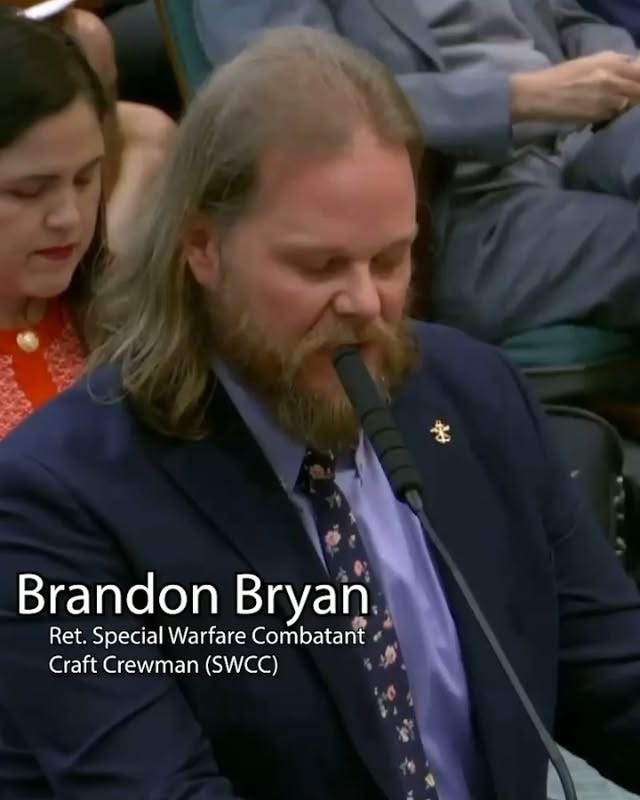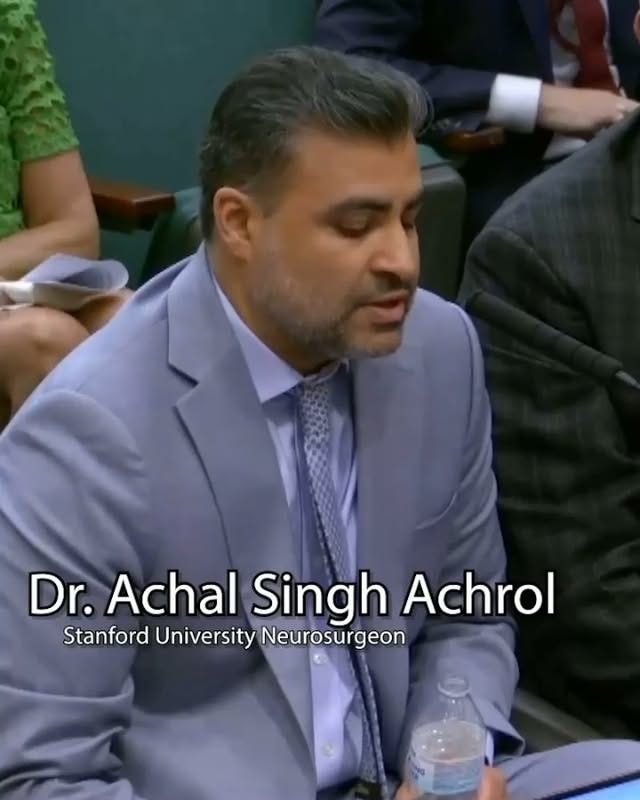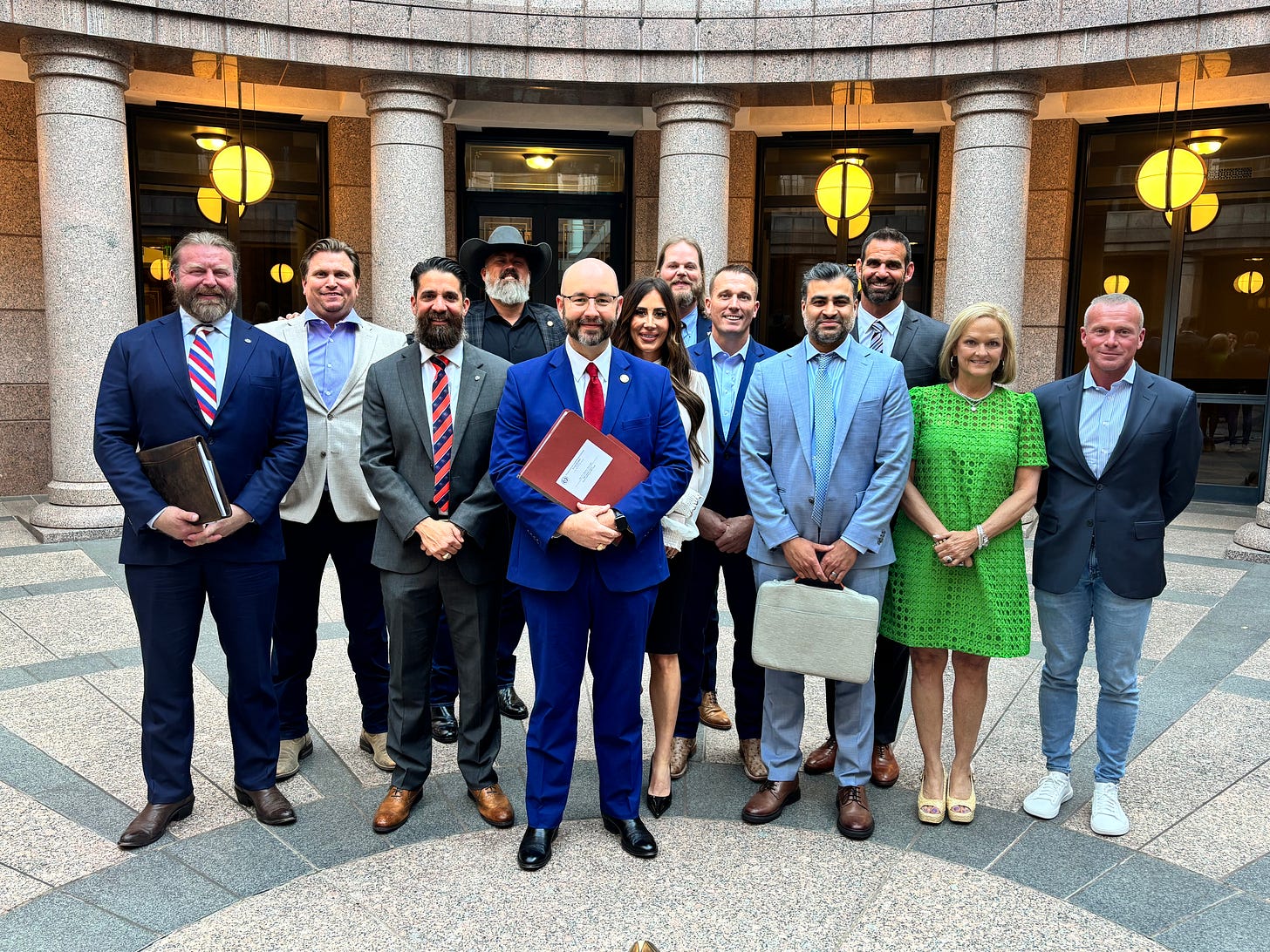Hope Has a Name. It’s Called Ibogaine.
From Medal of Honor recipients to grieving mothers—these testimonies shook the room and could change the future of mental health in Texas.
At the Texas Capitol on Monday, something rare happened: lawmakers got quiet and listened—and what they heard might just reshape the future of mental health and addiction treatment in America.
Veterans, military spouses, grieving parents, doctors, and national policy leaders stood before the Texas House Committee on Public Health on Monday to testify in support of HB 3717—a bill that would fund FDA-approved ibogaine research in the state of Texas.
They didn’t come to make noise. They came to make history.
The lawmakers listened. They asked thoughtful, engaged questions.
Now, the hope is that HB 3717 will advance to the next stage of the legislative process and that Texas will lead the nation in bringing ibogaine research to the United States.
Ibogaine isn’t just a treatment. It’s a lifeline. One that’s helping people heal from the most complex and devastating struggles—opioid use disorder, trauma, brain injury—and one that, until now, has been out of reach for nearly every American.
HB 3717, introduced by Rep. Cody Harris, would create a pathway for FDA-approved clinical trials of ibogaine in Texas and create a path for those who are out of options to finally access real hope—legally, safely, and on U.S. soil.
These are the stories that have the power to shift the conversation—and save lives.
Below are the individuals who stepped up and shared their truth. I’ll let their voices speak for themselves.
HB 3717 Testimonials:
Bryan Hubbard, Executive Director of the American Ibogaine Initiative, has spent decades on the front lines of the opioid crisis. “The opioid epidemic has cost Texas $600 billion…. Ibogaine heals.”
Brandon Bryan, a retired Naval Special Warfare (SWCC) operator from Tyler, Texas, nearly lost his life to trauma, addiction, and suicidal thoughts after 20 years of service. Seven medications, night terrors, suicidal thoughts—gone after ibogaine.
“Physically, I came home, but mentally, something had shifted in me…. I could not find complete relief. I was a shell of a man and ready to end my life. My experience with ibogaine therapy has given me a new lease on life.”
Chris Thompson, a former Army Green Beret from College Station, Texas, deployed to combat seven times and tried everything from the VA to the Cleveland Clinic.
“I was diagnosed with PTSD and TBI… I became dependant on alochol…. in 2013, thoughts of taking my own life began to enter my mind. I turned to the VA…. prescribed dozens of medications.” After one ibogaine treatment, he’s off all medications, nearly four years sober, and finally sleeping through the night. “There is no question in my mind I would not be here today without VETS and Ibogaine assisted therapy".”
Marcus Luttrell is a retired Navy SEAL, Navy Cross and Purple Heart recipient, and proud Texan from Magnolia. He said he was married to the military life—but it wasn’t survivable if he wanted to be a father and husband. After struggling with opioids and alcohol, ibogaine got him off everything.
“I found my spirit in there, it gave me my purpose.”
Laurie Elsass, an addiction and recovery advocate, lost her son Reid to an opioid overdose in 2019 after almost a decade of struggling with addiction.
“My son and so others like him everyday have roughly a 10% recover form opioid addiciton…. my son was more than a statistic. His precious life mattered.”
Amber Capone, a military spouse and co-founder of VETS, fought to save her husband when the system failed—and now fights for countless others.
“I have 39 friends who are widows from the wars. I knew we were the lucky ones who made it out alive however, we were not prepared for the war after the war.”
Dakota Meyer is a Medal of Honor recipient, Marine Corps Veteran, and father from Spicewood, Texas. After years of battling night terrors, panic attacks, and the fear of falling asleep, he said he began to wonder if dying would be easier than living.
Then he underwent one ibogaine treatment—and everything changed.
Ibogaine is “like going through years of therapy in one session. It’s a hard reset. For me, it was just one session. One…. that treatment saved my life.”
Chase Rowan, a former Army Ranger from Keller, Texas, was introduced to opioids by military doctors after a severe traumatic brain injury during a training jump and spent 17 years trying to break free from the grips of his addiction. Multiple attempts at traditional rehab didn’t help. One ibogaine treatment got him clean. He just celebrated two years sober.
“I’ve really struggled and looked for help and haven’t been able to find it… less than 10% of these inpatient treatment centers are successful… For somebody that was addicted as long as I was to heavy opiates… last month I celebrated two years of sobriety… If it wasn’t for this medicine, both of my kids would be without a dad.”
Dr. Achal Singh Achrol, a Stanford University neurosurgeon, is helping lead ibogaine research and called on lawmakers to move science forward.
Ibogaine treatment showed a reversal in brain age. “We are not aware of any prior treatment that has demonstrated this” outside of ibogaine.
Marcus Capone, a retired Navy SEAL and co-founder of VETS, found healing through ibogaine after years of debilitating post-traumatic stress and brain injury.
“Ibogaine gave me my life back—and I’ve watched it do the same for hundreds of others.”
Mitch Fuller, Chairman of the VFW National Legislative Committee, spoke on behalf of Veterans nationwide.
“The pills are not working. They are not working. And they are contributing to Veteran suicide. The VFW is passionate about this issue—and it’s our next long-term fight.”
Rocco Orlando is a Veteran who has been sober for six years after struggling with functional alcoholism. Since leaving the military, life has been difficult. Though he’s managed to stay sober, he describes his recovery as a daily battle — something he’s had to strong-arm rather than truly heal from. He testified in support of this bill because he believes ibogaine could be the breakthrough he’s been waiting for. He wants the chance to reclaim his life.
“I implore you to look into the data, look into these studies, the efficacy of this drug is undeniable. We owe it to our veterans and their families to get them the care that the need and deserve. So I implore you to please make sure this bill passes.”
HB 3717 isn’t just compassionate—it’s fiscally responsible.
Bryan Hubbard laid out the financial numbers with clarity and conviction.
Texas currently spends $50 million a year on programs that punish relapse and cycle people through the justice system. That same $50 million—if invested in research—could be put toward real solutions that heal.
“Since the approval of OxyContin, the opioid epidemic has cost Texas $600 billion. We can’t afford to keep doing what doesn’t work,” Hubbard testified.
Texas may be where this legislation starts, but this is a national movement. We won’t stop until ibogaine is fully researched, understood, and available through medical systems to every American who needs it. Not in secret. Not overseas. But safely, legally, and backed by science—on U.S. soil.
If you feel moved by these voices, let yours be heard too. Visit RallyTexas.org to contact your legislators and urge them to support HB 3717. For non-Texans, your time in coming. This is a rare moment—an opportunity to stand at the forefront of something that could fundamentally change the fabric of our nation.
Ibogaine heals. And the time to act is now.
🎥 To watch the full hearing, click here.



















I’ve been following this effort for a bit.
There are also anecdotal reports of Ibogaine treating and alleviating Parkinson’s symptoms - to the point of going from complete immobility to walking normally.
We need to push our state legislatures to back these types of studies and research, instead of BS social programs that are rife with corruption and politically weaponized.
Imagine if your states lotter proceeds for 1 year went to this study or one like it.
Thank you for posting this. I had a mental note to follow this hearing/testimony, but it got lost in the mix.